This is the weekend edition of TheMarioBlog and will be updated as needed. Because I am taking a few days off next week, the next blog edition will be Monday, October 9, reporting from Konstanz, Germany.
There are many reasons to read this article by Ken Doctor, whose reasoning is always supported by data, as in this case.
But I must admit that I first got into this piece because of the headline and the illustration accompanying it. It is not everyday that we see the image of the late singer Peggy Lee on the type of material published by the Nieman Lab. But here it was.
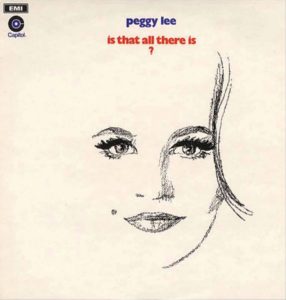
The question is perfect for the content of Doctor’s article, and, indeed, you get to listen to Peggy Lee singing one of her signature songs: Is that all there is?
For newspaper publishers asking the question, and not necessarily singing in the process, Ken Doctor offers some numbers to ponder:
While The New York Times today has twice as many digital-only subscribers as Sunday print subscribers (and three times as many as daily print), most newspapers’ subscriber totals still tilt heavily to slowly dying print. In fact, 90-plus percent of all subscriptions to regional dailies remain to print products, less than 10 percent to digital.
The big metros versus the regionals
….numbers are still okay if you’re The New York Times with a U.S. monthly audience of 97 million, according to comScore data for August, or The Washington Post with 92 million. If, though, you’re The Baltimore Sun, The Sacramento Bee, or the Arizona Republic — with audiences one-fifth to one-twentieth that size — the math’s a lot harder.
That’s why we see that huge disparity in digital subscriber counts. The Times has surpassed 2 million paid digital subscribers, while the Post is now over 1 million.
The regionals don’t fare as well
……among the regionals, the Los Angeles Times now ranks first, as I reported Friday, with 105,000. Then, The Boston Globe follows with 90,000, while the Chicago Tribune and Star Tribune can count about 50,000. That’s the high end; for most of the local press, the numbers are far, far lower.
Creation of new products, innovative formulas
I found that the Ken Doctor’s reasoning is perfect here: there must be new products and innovative approaches to monetizing operations, and his article cites several, from Scroll: Give me $5 a month and I’ll turn off all the ads on a lot of premium news sites, to Facebook subscriptions (“This week, as it prepares to add a subscription feature to Instant Articles, it’s meeting more headwinds from publishers than it expected.”) .
I sense that Ken Doctor, by presenting so much valuable and updated material, is urging publishers to ask the question in the Peggy Lee song, Is that all there is? He also seems to answer it : there is more for those willing to be innovative on how to get audiences to pay for the news they consume.
At The Washington Post: celebrating a landmark moment
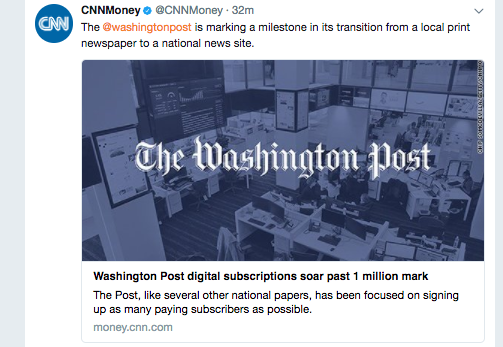
Washington Post digital subscriptions soar past 1 million mark
Highlight:
“Our growth has been exceptionally strong, with digital-only subscriptions more than doubling since January 1 this year,” Publisher Fred Ryan wrote. “Digital-only subscriptions have more than tripled since last year at this time.”
Of interest
….the Post has seen “especially impressive growth in our digital subscription base among millennials as they have grown accustomed to paying for products and services they view as valuable and even essential.”
Lyft Vs. Uber
If this prominent ad in The New York Times’ homepage is an indication, Lyft, the transportation service and main rival of Uber, is declaring war on its competitor. The choice of color for the ads, the prominence of the “ears” and banner all point in the direction of Lyft pulling all the stops to get you to ride with them. Wonder if Uber will come back with its own ad strategy.
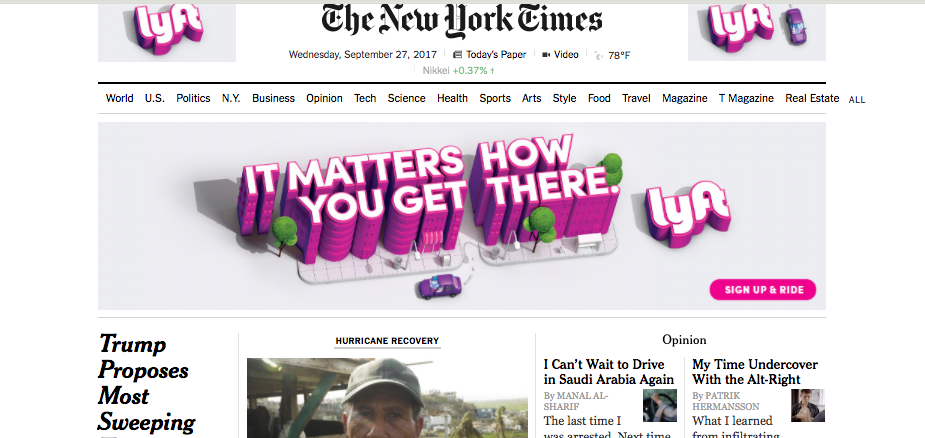
Digital Media North America
http://events.wan-ifra.org/events/digital-media-north-america-2017
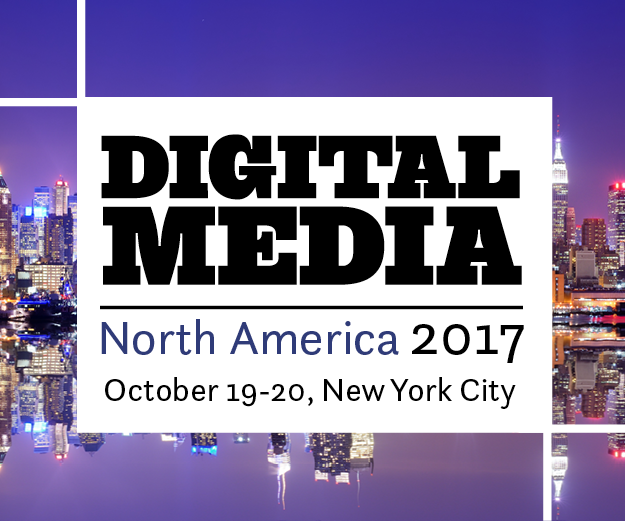
This two-day event, organized jointly by WAN-IFRA and the News Media Alliance (NMA), will provide a unique opportunity for North American news media executives to hear and discuss digital revenue strategyfrom the world’s most advanced media companies.
I will be one of the speakers for this conference in New York City.
Finalists in the Digital Media contest 2017
https://mailing.wan-ifra.org/vm.php?m=4769&u=ed7c3017381fb21f96ef5cf355e244e7
Mario’s Speaking Engagements
Oct. 19, WAN IFRA Digital Media North America, New York City
Nov. 16-19, WAN IFRA Latin America, Buenos Aires, Argentina

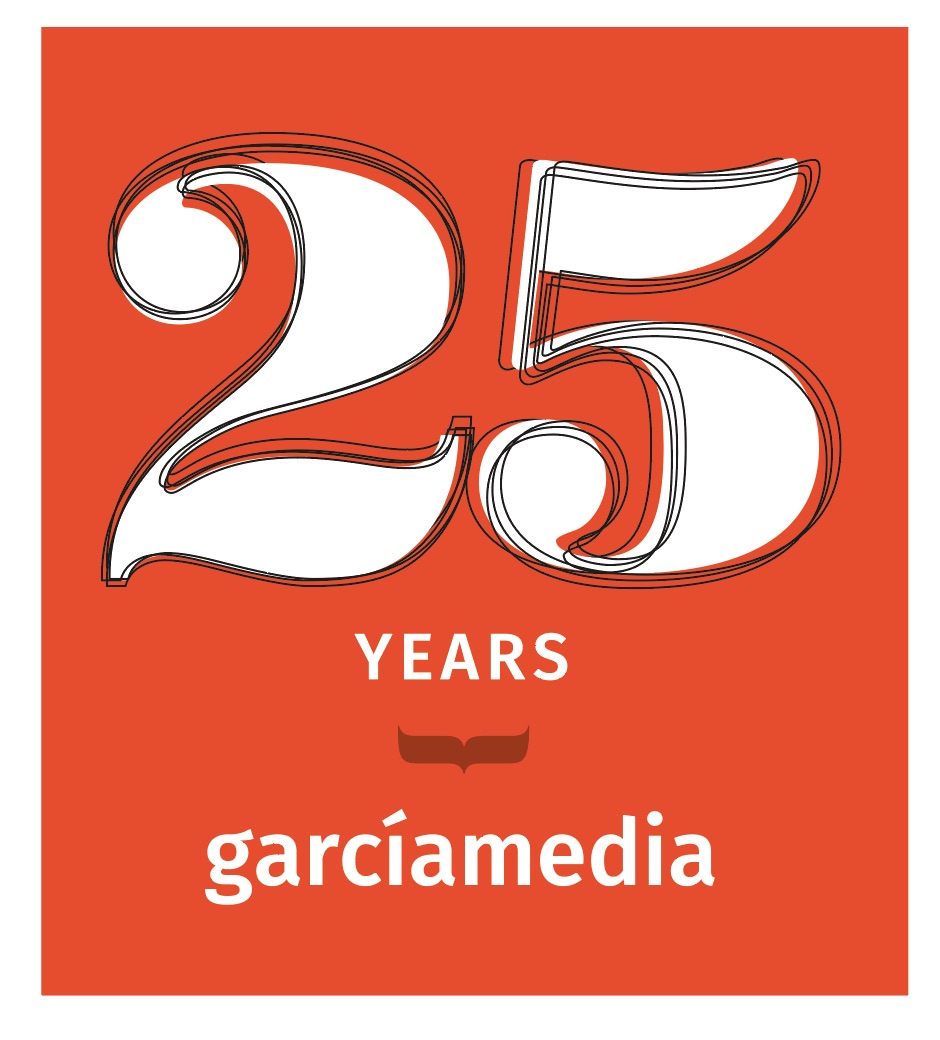
TheMarioBlog post #2709